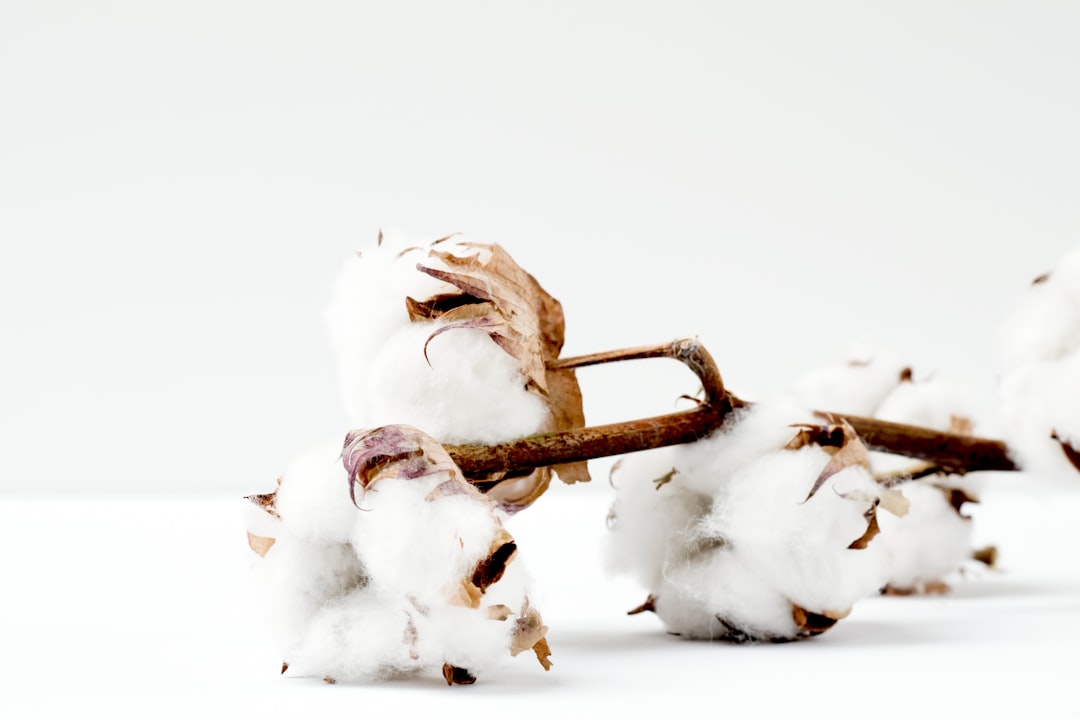 Photo from Unsplash
Photo from Unsplash
Originally Posted On: https://cottontoday.cottoninc.com/cotton-to-compost-transform-waste-management-textile-industry/
Why Composting: Composting is a remarkable sustainable practice that transforms natural materials into nutrient-rich soil amendments.
Reducing GHG Emissions:. Compost not only reduces greenhouse gas emissions but also helps remove additional CO2 from the atmosphere. The use of compost can help meet a plant’s nutrient needs and promote further carbon capture as the plant grows.
Exploring Research on Cotton Composting: Cotton Incorporated research indicates that cotton can be a valuable addition to compost.
- Cornell University and AMC Labs testing confirm cotton denim is compostable
- Polyester in blended jeans does not degrade
- Synthetic yarn and pockets do not degrade
Opportunities in Cotton Composting: Cotton waste, when properly composted, can significantly contribute to the organic matter content of compost, enriching its nutrient profile.
The Future of a Circular Economy Must Include Composting: Composting, with its vast array of benefits, has the power to revolutionize waste management practices in the apparel industry. By embracing cotton composting, we can reduce waste, conserve resources, and promote sustainable production and consumption.
At Cotton Incorporated, we are constantly exploring innovative ways to promote sustainable practices within the apparel and textile industry. Earlier this month, Dr. Jesse Daystar, Chief Sustainability Officer and Vice President of Sustainability at Cotton Incorporated spoke at the AIM for Climate Summit about the critical role of soil health in regenerative agriculture. During the event, many industry leaders, policymakers, and researchers came together to tackle the challenges of climate change and to drive transformative climate action through regenerative agriculture and soil health.
In this article, we will explore the world of composting, its wide-ranging benefits to soil health, and the specific opportunities and challenges it presents. Furthermore, we will dive into the innovative realm of cotton composting and its potential to revolutionize waste management in the textile industry.
Compost is made by breaking down natural materials in a controlled environment using bacteria and oxygen. This process involves specific temperatures that help get rid of harmful germs and weed seeds. It also stabilizes carbon, making it beneficial for plants to grow. By enriching the soil, compost improves its structure, enhances water retention, and increases nutrient content, resulting in healthier plants and higher crop yields. Additionally, composting diverts organic waste from landfills, reducing methane emissions and conserving precious landfill space. Additionally, this practice could play a crucial role in climate change mitigation by sequestering carbon in the soil.
Composting Initiatives in the United States
The United States boasts a robust network of composting facilities that play a crucial role in processing organic waste and producing nutrient-rich compost. These facilities are essential for diverting organic materials from landfills and promoting sustainable waste management practices.
Composting facilities exist at various scales, from small-scale community composting sites to large industrial operations. They provide the necessary infrastructure and expertise to efficiently process organic waste and transform it into valuable soil amendments. Thus, one could easily envision a future where cotton textiles are part of this existing composting infrastructure.
Several states and localities have implemented initiatives to promote composting, including California, Vermont, Massachusetts, Washington State, Oregon, and New York.
Digging Deeper: Cotton and Composting
The Cotton Incorporated composting research journey began in 2010 when researchers from our organization and Cornell University published a comparative study on the Biodegradability of Cotton and Polyester Fabrics.We continue to explore composting techniques and their potential applications in the cotton industry. Our ongoing research aims to uncover innovative methods for effectively composting cotton waste and maximizing its environmental benefits.
Recycling cotton waste through composting allows us to divert textiles and clothing from landfills, promoting waste reduction and resource efficiency and reducing methane emissions in landfills. By transforming textile scraps and byproducts into valuable resources for soil improvement, composting could play an important role in improving soil health and could also help reduce the need for synthetic fertilizers on farms while lowering GHG emissions.
Cotton composting is a fascinating process that involves decomposing cotton waste into nutrient-rich organic matter. The magic happens when cotton waste is mixed with other organic materials, providing a conducive environment for microorganisms to break down the components into humus—an organic material that greatly benefits soil health.
To better understand the process, it is essential to differentiate between biodegradable and compostable materials. Compostable products adhere to stricter standards, such as ASTM D6400, and undergo decomposition within a specific timeframe in controlled composting conditions. Biodegradable products, on the other hand, decompose naturally over a more extended period without stringent requirements. Compostable cotton textiles provide an opportunity for the textile industry to embrace sustainability more fully.
Opportunities and Challenges in Cotton Composting
Recycling cotton waste for composting presents a tremendous opportunity to divert textiles and clothing from landfills, promoting waste reduction and supporting the circular economy. This concept is well aligned with the sustainability goals of the textile industry, fostering responsible practices that reduce environmental impact. Additionally, municipal composting programs, including curbside collection of organic waste, encourage community-wide composting, effectively reducing landfill waste and promoting sustainable waste management practices.
Nevertheless, cotton textile composting does come with its own set of challenges. We are actively working to overcome these barriers to foster further adoption of this sustainable practice. Logistics associated with the collection, sorting, and transportation of cotton textiles at end-of-life can be complex and costly. Additionally, ensuring that cotton waste is free from synthetic material contamination, such as polyester, is crucial, as non-compostable elements can disrupt the composting process. Education and infrastructure development are also key areas that require attention to fully unlock the potential of cotton textile composting.
Moreover, cotton composting offers a solution that extends beyond waste reduction. It addresses broader environmental issues such as climate change and soil degradation. By sequestering carbon in the soil and improving soil structure, cotton composting plays a pivotal role in mitigating climate change and combatting soil degradation. Composting also addresses broader environmental issues such as climate change and soil degradation, making it a crucial component of regenerative agriculture practices. These efforts pave the way for the development of sustainable communities and a circular economy that values resource efficiency and waste reduction.
The Future of a Circular Economy Must Include Composting
Composting, with its vast array of benefits, has the power to transform waste management practices in the apparel industry. By embracing cotton composting, we can reduce waste, conserve resources, and promote sustainable production and consumption. Overcoming the challenges associated with cotton composting requires collaboration, education, and infrastructure development. Let us seize the opportunities presented by cotton composting, contributing to a circular economy, mitigating climate change, and fostering sustainable communities for a brighter future.






